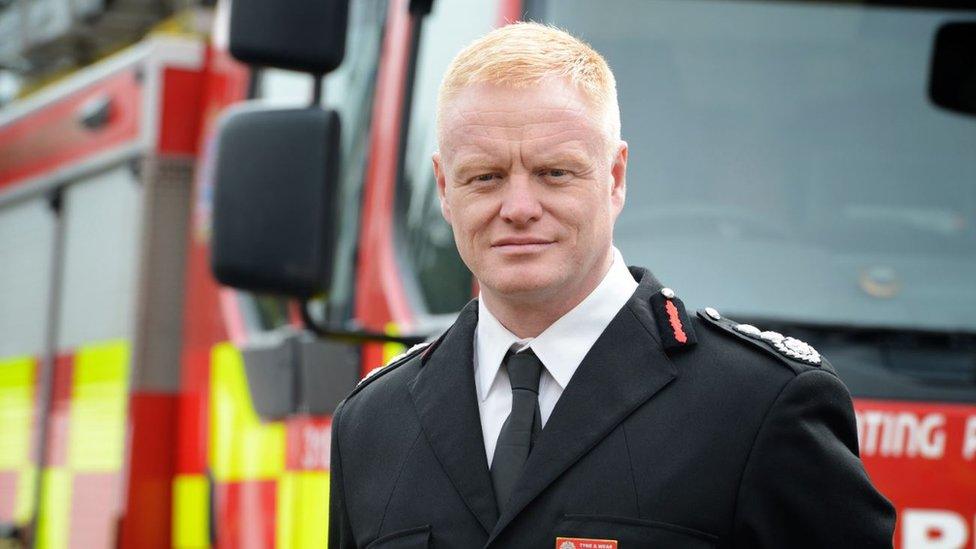Up to 70 jobs at risk at Tyne and Wear Fire Service
- Published

Mr Lowther said the brigade had "finite resources"
Up to 70 jobs could go after Tyne and Wear Fire and Rescue Service unveiled plans to save more than £3m by 2022.
Chief fire officer Chris Lowther said the organisation's "finite resources" had to be placed where there was the "greatest risk".
Proposals also include relocating some appliances to stations in Newcastle, Sunderland, North and South Tyneside, where there was "expected demand".
The Fire Brigades Union (FBU) said the service was already "cut to the bone".
A 10-week consultation process on the proposals has been launched.
'Sustainable and flexible'
Mr Lowther said: "To ensure we are a sustainable and flexible fire and rescue service, continuing to deliver an excellent service for our communities, our finite resources must be applied to where the greatest risks are.
"As a result, we need to look at how we resource our operational responsive services, such as our fire stations and control room, to ensure we have the correct balance."
He said recent figures suggested the organisation would have a £3m budget shortfall by 2020/21, rising to £3.6m by 2021/22.
The options include moving a fire engine and targeted response vehicle (TGV) from Washington to Sunderland Central and from Gosforth to Newcastle Central, as well as making changes to rotas and reducing staffing levels at stations.
Mr Lowther said if all three proposals were implemented, up to 70 jobs could be cut, but without the need for redundancies.
An FBU spokesman said: "These cuts will be a depletion of an already cut to the bone service.
"Theresa May stood up in front the country and said that austerity was over - that quite clearly is not the case in Tyne and Wear."
- Published17 November 2010
- Published4 October 2010